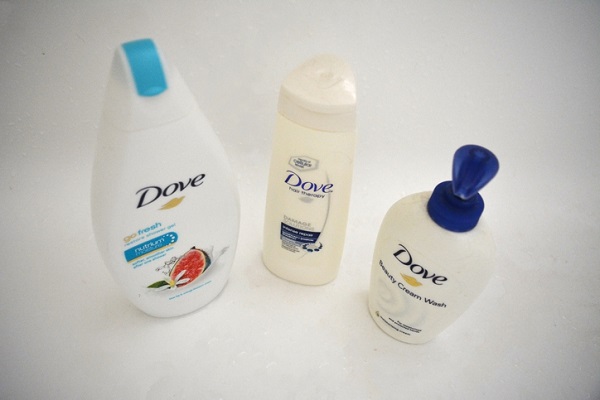ii view: big decision for Unilever after failed Glaxo healthcare bids
Should Unilever bid again and increase exposure to growth products? We assess prospects.
17th January 2022 11:35
by Keith Bowman from interactive investor
Should Unilever bid again and increase exposure to growth products? We assess prospects.

Unilever bids for Glaxo's consumer healthcare business are rejected
ii round-up:
Consumer goods giant Unilever (LSE:ULVR) today confirmed that it had previously made a £50 billion bid to buy GlaxoSmithKline's (LSE:GSK) consumer healthcare business.
Glaxo confirmed at the weekend that it had rejected several bids from Unilever, the latest made on 20 December, on the basis that it fundamentally undervalued the healthcare business.
Unilever shares fell by more than 7% in UK trading. Glaxo shares rose by more than 5%. Unilever’s most recent bid for the Glaxo division, which owns such brands as Sensodyne toothpaste and Panadol, was made up of £41.7 billion in cash and £8.3 billion in Unilever shares.
- 10 stocks that could protect investors from inflation
- Friends & Family: ii customers can give up to 5 people a free subscription to ii, for just £5 a month extra. Learn more
Unilever, whose brands include Marmite, Dove and Domestos, has previously been busy rejigging its portfolio of businesses into higher growth areas, selling its out-of-favour tea business and buying digitally-native skin care brand Paula's Choice.
In a strategic update, brought forward because of the weekend's events, the company said it plans to materially expand its presence in Health, Beauty, and Hygiene, categories which offer higher rates of sustainable market growth. Major acquisitions will also be accompanied by the accelerated divestment of lower growth brands and businesses. Unilever management still believe Glaxo's consumer healthcare business would be a strong strategic fit.
An acquisition of GSK’s healthcare business would increase Unilever's exposure to high growth and high gross profit margin product categories from 17% in 2021 to 33%.
While broker Morgan Stanley argued that buying the healthcare business would not fix Unilever’s core business, it does see some merits to an acquisition but admits there are clear risks around debt and execution.
Unilever’s move to a single stock market listing back in November 2020 was made partly to help it more easily issue new shares and raise money, potentially helping to fund acquisitions.
The consumer goods giant is scheduled to report a fourth-quarter and full-year trading update on 10 February.
ii view:
Unilever's sales are split almost equally between Beauty & Personal Care and Foods & Refreshment at around 40% each. Home care accounts for the balance. Its approximate 400 brands also include Sunsilk, Comfort, Ben & Jerry’s, Hellmann’s and Knorr. Products are available in around 190 countries. Around three-fifths of its sales are generated in emerging markets. In 2020, around half its revenues came from its 13 biggest brands.
For investors, economic uncertainty and the rising cost of living could put pressure on consumers to trade down from Unilever’s premium brands. Unilever shares have retreated by around 15% over the last year compared to a gain of about 13% for the FTSE 100 index. Group debt is expected to rise should it eventually acquire GSK’s healthcare business and its track for acquisitions is arguably mixed.
- Best 39 growth stocks for 2022
- Take control of your retirement planning with our award-winning, low-cost Self-Invested Personal Pension (SIPP)
On the upside, exposure to higher growth products would increase while the rejected offer was expected to have proved earnings accretive in the near to medium term. It also flags Unilever’s intention to undertake bold product portfolio change, and the shares currently sit on a historic and forecast dividend yield of around 3.5% - not unattractive in the current economic climate. In all, and with the current analyst estimate of fair value sat at just under £43, investors may wish to stay patient with this consumer goods giant.
Positives:
- Provides diversity in both product type and geographical location
- Defensive qualities in uncertain times
Negatives:
- Rising cost pressures
- Discount retailers often only stock their own branded labels
The average rating of stock market analysts:
Strong hold
These articles are provided for information purposes only. Occasionally, an opinion about whether to buy or sell a specific investment may be provided by third parties. The content is not intended to be a personal recommendation to buy or sell any financial instrument or product, or to adopt any investment strategy as it is not provided based on an assessment of your investing knowledge and experience, your financial situation or your investment objectives. The value of your investments, and the income derived from them, may go down as well as up. You may not get back all the money that you invest. The investments referred to in this article may not be suitable for all investors, and if in doubt, an investor should seek advice from a qualified investment adviser.
Full performance can be found on the company or index summary page on the interactive investor website. Simply click on the company's or index name highlighted in the article.